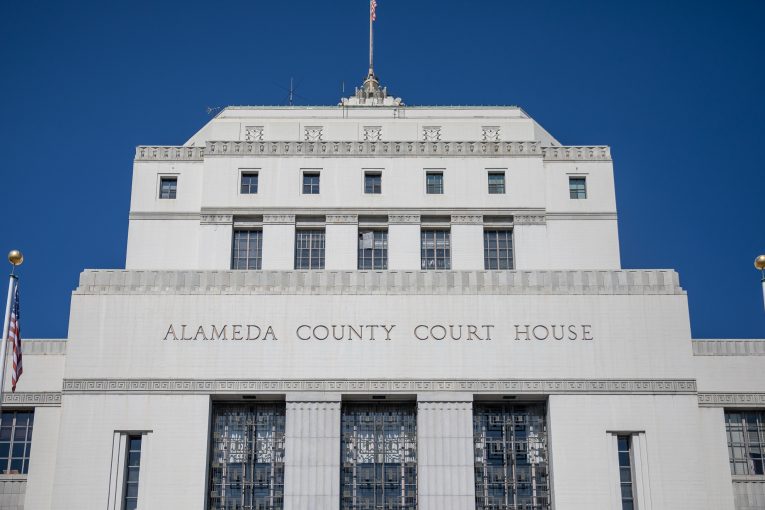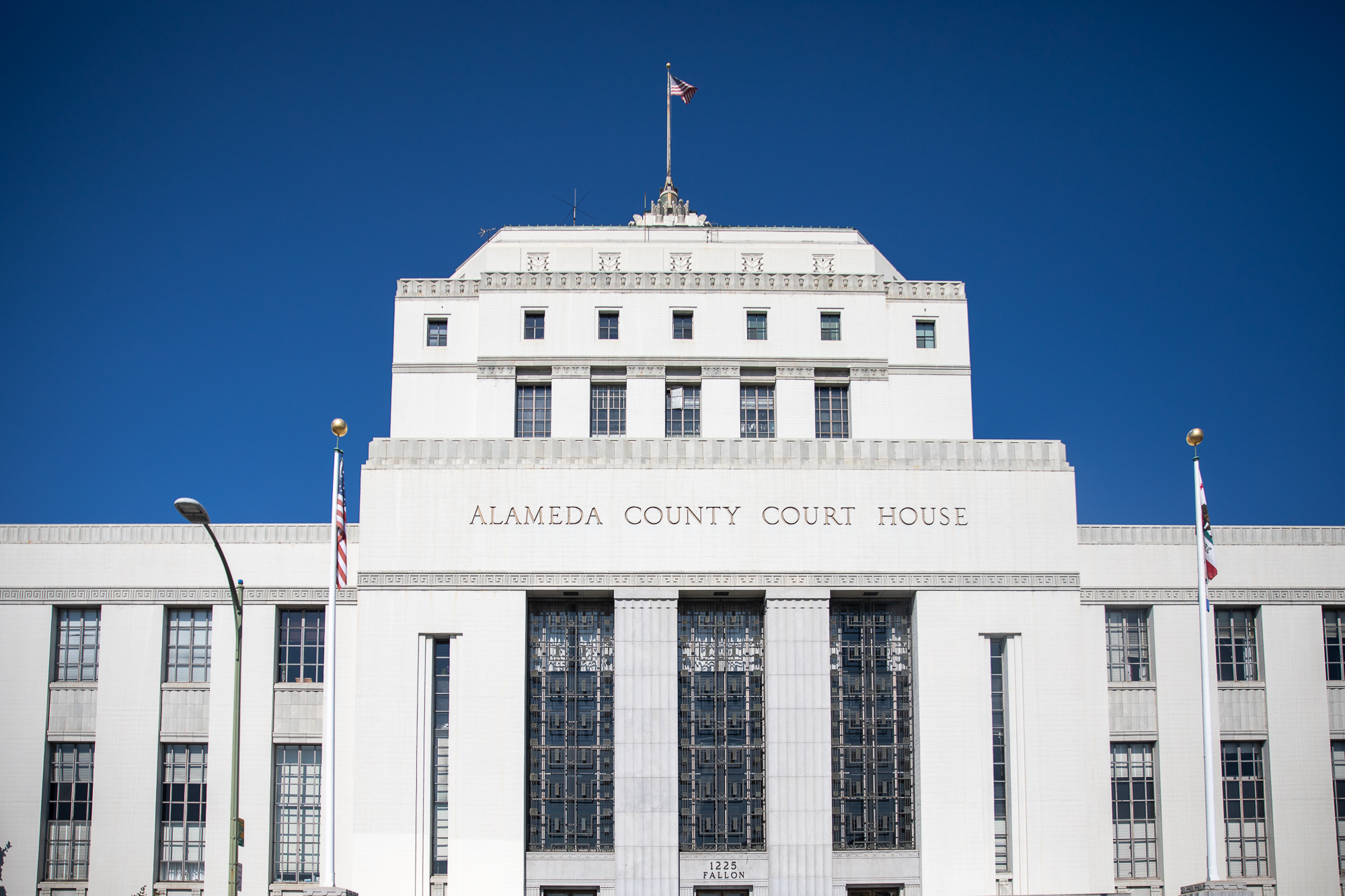
 By Jake Romero
By Jake Romero
DUBLIN, CA — The defense and prosecution concluded their arguments in the trial of Tyler Underwood late Friday at the East County Hall of Justice / Alameda County Superior Court, and the jury is expected to deliberate beginning Monday.
Underwood is charged with murdering his friend, Darren Walker, on Oct. 9, 2018, when Underwood crashed his car while driving under the influence.
Deputy Public Defender Michael Wu raised the issue of consciousness of guilt and said that no one involved in the crash, including Underwood, mentioned the victim on the night of the incident because it did not occur to them that something had happened to him. The victim’s body was not found until the following day.
PD Wu said that Underwood did not turn himself in after learning of Darren Walker’s death because he was not brave enough, but possibly would have if he had a support network. Underwood’s friends told him he should either flee to Mexico or kill himself, according to PD Wu.
PD Wu said Underwood continued with the lie that someone else had been driving, because he had “dug himself into a hole. It was desperate and it was wrong, but it doesn’t prove that he was intoxicated.”
The defense mentioned prior witnesses whose testimony refuted Underwood being intoxicated, such as a police officer who said Underwood seemed coherent on the night of the crash and a doctor who explained Underwood’s Glasgow Coma Scale score.
PD Wu discussed implied malice regarding the murder charge and said that Underwood’s actions did not convey a conscious disregard for human life because, at the time, there were no other cars on the road, the road was straight and the weather was clear.
The defense concluded its closing argument by emphasizing the jury’s duty to follow the ‘guilty beyond a reasonable doubt’ standard.
PD Wu said the jury is “absolutely certain” of Underwood’s guilt on one charge—of driving without an ignition interlock device—because Underwood admitted to it and numerous witnesses attested to it. PD Wu said the jury should have the same level of certainty about the other charges, especially murder.
Deputy District Attorney Abigail Mulvihill began the prosecution’s rebuttal and said that the jury should have no doubt of Underwood’s guilt after hearing from 28 witnesses that he was driving under the influence.
DDA Mulvihill referred to the defense’s earlier claim that one witness—a woman who was a passenger in the car—was unreliable because she would “do whatever it takes” to ensure Underwood is found guilty of murder.
DDA Mulvihill said that, if this were true, an arrest warrant would not have been needed to get the woman to testify in court, and that the defense attacked the woman’s credibility because she witnessed the victim’s “one-way ticket to death.”
Police did not subject Underwood to a field sobriety test because he lied about who was driving, and the defense previously claimed that this test is the only valid way to determine if someone is intoxicated, according to DDA Mulvihill.
“The ultimate field sobriety test is actually one that the defendant did perform, and it is ‘Can you drive a car like a sober person?’” said DDA Mulvihill. “He actually did that one for us, and he failed it spectacularly.”
The prosecution expressed that the defense’s theory of a pothole causing the crash was absurd, citing pictures of the road that had been shown in the trial where no pothole was visible.
“Did anyone get up here and say, ‘Yeah, there’s a big pothole in this road’?” asked DDA Mulvihill. “‘Yeah, we’re really concerned about it. Yeah, there’s actually a big pile of cars down the embankment from all the sober people driving 65 miles-per-hour who just keep hittin’ this pothole, and they keep flyin’ off the road.’”
DDA Mulvihill said the jury had been presented with a “kitchen sink of defenses” and that PD Wu was “throwing spaghetti at the wall and seeing what sticks.”
Concluding the rebuttal, she said Underwood causing someone’s death while driving under the influence was inevitable.
The jury will deliver the verdict after deliberations.


